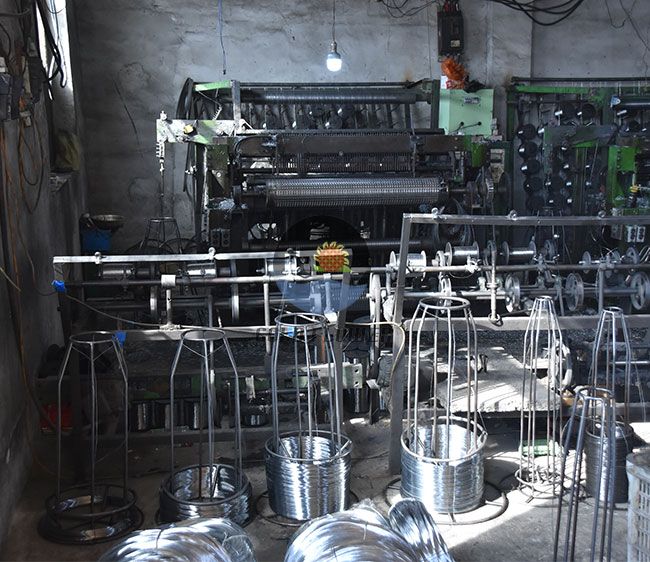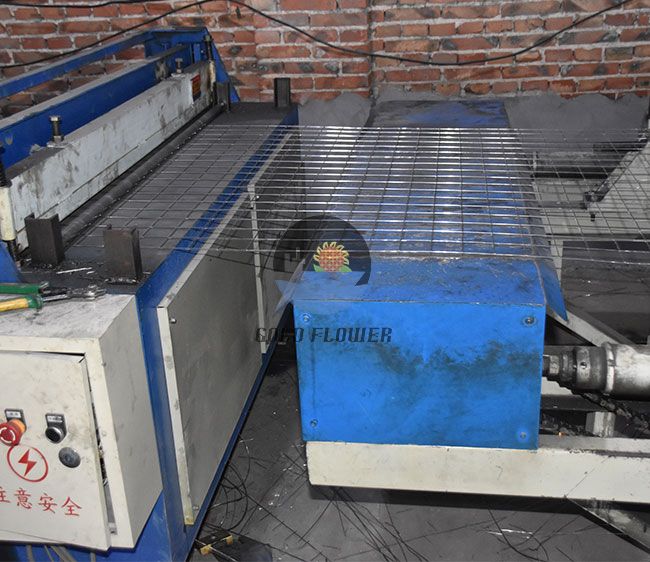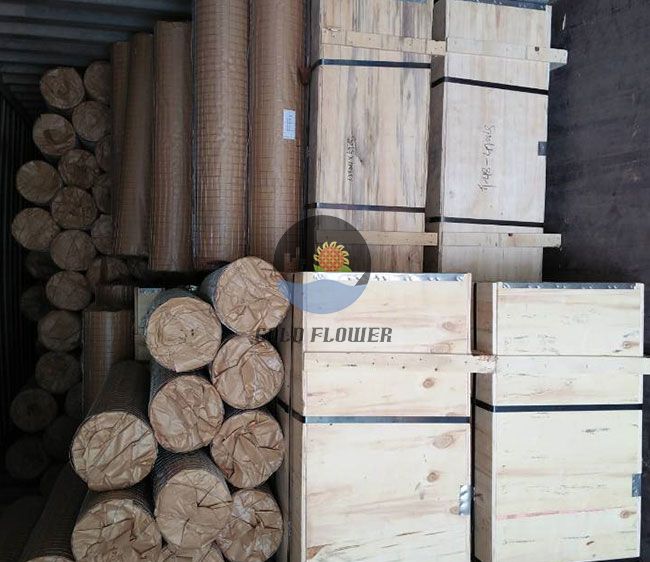Авг . 06, 2025 01:40 Back to list
CE Certified 250 Micron Stainless Steel Mesh | Fine & Durable
In the world of industrial materials, precision and quality are not just desired—they are mandated. This is especially true for filtration, screening, and protection applications where material integrity is paramount. This guide provides a deep dive into ce certification 250 micron stainless steel mesh, a product that stands at the intersection of high performance and regulatory compliance. We will explore everything from its technical specifications and manufacturing process to its diverse applications, helping you understand why CE-marked mesh is the gold standard for critical industries.
The Growing Demand: Industry Trends in Certified Wire Mesh
The global industrial wire mesh market is on a significant upward trajectory, driven by rapid industrialization, stringent quality control mandates, and increasing international trade. A key trend is the shift towards certified products. The CE marking, in particular, signifies that a product has been assessed by the manufacturer and deemed to meet EU safety, health, and environmental protection requirements. For products like stainless steel mesh, this is a non-negotiable credential for market access within the European Economic Area (EEA) and a recognized benchmark for quality worldwide.
Market data indicates a growing preference for high-grade materials like SS 316 due to their superior corrosion resistance, especially in harsh environments found in the chemical, marine, and pharmaceutical industries. The demand for precise aperture sizes, such as 250 microns (which translates to approximately 60 mesh count), is also increasing. This precision is critical for applications like fine particle filtration, screen printing, and scientific analysis. As industries automate and refine their processes, the need for reliable, uniform, and durable components like ce certification 250 micron stainless steel mesh will only intensify.
Unpacking the Details: Technical Parameters of 250 Micron Stainless Steel Mesh
Understanding the technical specifications is the first step in selecting the right wire mesh for your application. The term "250 micron" refers to the aperture size—the distance between two adjacent parallel wires. This precision is what makes the mesh effective. However, many other parameters define its performance and suitability.
| Technical Specification for CE Certified 250 Micron Stainless Steel Mesh | |
|---|---|
| Parameter | Value / Description |
| CE Certification | Conformitè Europëenne; meets EU standards for health, safety, and environmental protection. |
| Aperture Size (w) | 250 µm (0.250 mm) |
| Mesh Count | Approx. 60 mesh/inch (23.6 mesh/cm) |
| Wire Diameter (d) | 0.17 mm (Typically, but can be customized) |
| Material Grade | Stainless Steel 304, ce certification wire mesh ss 316, 316L (SS 316/316L recommended for corrosive environments) |
| Weave Type | Plain Weave (most common for this spec), Twill Weave |
| Open Area (%) | Approximately 36.3%. Calculated as (w / (w+d))^2 * 100 |
| Standard Compliance | Manufactured in accordance with ISO 9044:2016 for industrial wire cloth. |
| Tensile Strength | > 650 MPa (Varies by wire diameter and material grade) |
| Roll Dimensions | Standard Width: 1m, 1.22m, 1.5m. Standard Length: 30m. Custom sizes available. |

From Filtration to Fencing: Diverse Application Scenarios
The versatility of CE-certified stainless steel mesh allows it to be a cornerstone component across a multitude of industries. Its properties can be tailored to meet very specific demands, leading to a wide range of applications.
1. Precision Filtration and Sieving
The primary application for a ce certification 250 micron stainless steel mesh is in high-precision filtration. In the pharmaceutical and food processing industries, it is used for separating solids from liquids, classifying powders, and ensuring product purity. Its compliance with CE and often FDA standards makes it a trusted material for applications where contamination control is critical. The consistent aperture size guarantees repeatable and reliable filtration results.
2. Advanced Screen Printing
The ce certification stainless steel wire mesh for screen printing offers superior performance over traditional polyester mesh. Its high tensile strength allows for higher screen tension, resulting in sharper print details and improved dimensional stability. The metal surface is also extremely durable, resistant to chemical solvents used in ink cleaning, and provides excellent paste and ink flow, making it ideal for printing electronic circuits, solar panels, and high-end textiles.
3. Security and Safety Fencing
While a 250-micron mesh is too fine for typical fencing, related products in the CE certified family serve this purpose. For instance, ce certification square mesh wire fencing and ce certification wire mesh pool fencing are engineered for safety and security. These products, often made from heavier gauge wire, provide robust physical barriers while maintaining visibility. The CE mark ensures they meet safety standards for load-bearing capacity and impact resistance, crucial for public and private safety installations.
4. Industrial Containers and Components
A ce certification stainless steel mesh box is used for parts cleaning, sterilization, and material handling in demanding industrial environments. The mesh construction allows for complete fluid or air circulation, ensuring thorough cleaning and drying. In a similar vein, a ce certification heavy duty wire mesh can be fabricated into machine guards, ventilation screens, and support grids in industries like mining and construction, where strength and durability are paramount.
5. Architectural and Design Elements
The aesthetic appeal of woven metal has not gone unnoticed by architects and designers. A ce certification fine steel mesh screen or a ce certification brass mesh can be used for building facades, interior partitions, balustrades, and decorative panels. The mesh provides a unique texture, interacts with light in interesting ways, and offers a sense of transparency while defining space.
The Manufacturing Journey: From Raw Wire to Certified Mesh
The Art and Science of Weaving Precision Mesh
Creating a high-quality ce certification 250 micron stainless steel mesh is a multi-stage process that combines metallurgical science with mechanical precision. Each step is critical to achieving the final product's specified properties and ensuring it meets the stringent requirements for CE certification.
Material Selection
Starts with certified raw SS304 or SS316 wire rods. MTR (Mill Test Report) is verified for chemical composition.
Wire Drawing
Rods are drawn through a series of dies to reduce them to the precise final diameter (e.g., 0.17 mm) with high tensile strength.
Loom Weaving
Drawn wire is woven on a specialized loom. Warp (longitudinal) and weft (transverse) wires are interlaced in a plain or twill pattern.
Chemical Cleaning
The woven mesh is passed through a degreasing bath to remove any lubricant oils from the drawing and weaving process.
Quality Inspection
Microscopic inspection for aperture uniformity, wire diameter checks, and defect detection. Conformance to ISO 9044 is verified.
CE Marking & Packaging
Once all quality and safety checks are passed, the product is CE marked, documented, and carefully packaged for shipment.
Key Process Highlights:
- Material Integrity: The process begins with selecting the correct grade of stainless steel. CE certification wire mesh ss 316 is chosen for its addition of molybdenum, which drastically enhances its resistance to chlorides and other industrial acids, making it essential for marine, chemical, and pharmaceutical applications.
- Manufacturing Craftsmanship: This is not a simple casting or forging process. The mesh is created through a highly controlled weaving process on industrial looms. The tension of the warp wires and the speed of the weft insertion are computer-controlled to ensure every aperture is uniform and meets the 250-micron specification with minimal deviation.
- Rigorous Testing Standards: Post-production, the mesh undergoes a battery of tests compliant with standards like ISO 9044 (Industrial wire cloth — Technical requirements and testing). This includes optical measurement of the aperture size, verification of wire diameter, and tensile strength tests. CE certification requires a full technical file documenting these tests, risk assessments, and a declaration of conformity.
- Extended Use-Life and Advantages: The result is a product with an exceptional use-life. Its inherent corrosion resistance prevents degradation, and its robust woven structure resists stretching and tearing. In applications like industrial filtration, this means less frequent replacement, reduced downtime, and lower long-term operational costs—a clear advantage over lower-quality, non-certified alternatives.

The Clear Choice: BST CE Certified Mesh vs. Generic Alternatives
When sourcing industrial components, the choice between a certified, reputable manufacturer and a generic supplier can have profound implications on project success, safety, and long-term cost. Here’s a direct comparison highlighting the superior value of a CE-certified product.
| Feature | BST CE Certified Stainless Steel Mesh | Generic / Non-Certified Mesh |
|---|---|---|
| Certification & Compliance | CE Marked. Full technical file and Declaration of Conformity provided. Conforms to ISO 9044. | No verifiable certification. Compliance with standards is claimed but not guaranteed. |
| Material Traceability | Full material traceability with Mill Test Reports (MTRs) for every batch, guaranteeing SS 304/316 composition. | Material origin and composition are often unknown or unverified. Risk of using inferior or recycled steel. |
| Aperture Precision | Guaranteed 250-micron aperture with minimal tolerance, verified by optical inspection. | High variability in aperture size, leading to inconsistent performance in filtration and screening. |
| Weave Quality | Uniform, tight weave with no defects (e.g., loose wires, streaks, or large openings). | Common defects like random large holes, wire slippage, and inconsistent tension. |
| Durability & Lifespan | High tensile strength and superior corrosion resistance lead to a longer service life and reduced maintenance. | Prone to premature failure, corrosion, and tearing, leading to frequent replacements and higher lifetime cost. |
| Customer Support & Customization | Expert technical support, customization options (size, material, weave), and post-sales service. | Limited support, "as-is" product offerings with no customization. |
Tailored to Your Needs: Customization and Related Product Solutions
While ce certification 250 micron stainless steel mesh is a standard product, many applications require specific modifications. We pride ourselves on offering comprehensive customization solutions. Clients can specify various parameters to create a mesh that perfectly fits their unique operational needs, including material grade, wire diameter, weave type, and final roll or sheet dimensions.
Featured Related Product: PVC Coated Welded Wire Mesh Roll
Expanding on the theme of durable, certified mesh solutions, we also offer the PVC Coated Welded Wire Mesh Roll. This product combines the strength of welded steel wire mesh with the exceptional corrosion and weather resistance of a PVC coating. It is an ideal solution for outdoor applications like fencing, animal enclosures, and agricultural uses where longevity is key.
PVC Coated Welded Mesh: Performance vs. Standard Galvanized
Market Application for PVC Coated Mesh
- Security Fencing (35%)
- Agriculture (25%)
- Gardening & Home (25%)
- Industrial (15%)

Real-World Success: Application Case Studies (Experience in Action)
Case Study 1: Pharmaceutical Sieving
Client: A leading European pharmaceutical manufacturer.
Challenge: The client required a highly reliable sieving medium to classify an active pharmaceutical ingredient (API) powder. The process demanded a precise 250-micron cut-off to ensure particle size uniformity, which is critical for drug efficacy and dissolution rates. The material had to be fully compliant with GMP (Good Manufacturing Practices) and resistant to cleaning solvents.
Solution: We provided rolls of ce certification wire mesh ss 316L. The SS 316L grade offered superior corrosion resistance, and the CE mark, backed by our comprehensive technical documentation and material traceability, streamlined their validation process. The mesh was installed in their vibratory sieves.
Outcome: The client reported a 15% increase in batch consistency and a significant reduction in validation time. The durability of the mesh has more than halved their annual screen replacement costs. The customer feedback stated, "The precision and reliability of this CE-certified mesh have become integral to our quality control process."
Case Study 2: High-Security Perimeter Fencing
Client: A data center facility.
Challenge: The facility needed a perimeter fence that was not only a physical deterrent but also complied with stringent European security and safety regulations. The fence needed to be anti-climb, anti-cut, and durable enough to withstand harsh weather for decades.
Solution: While the primary keyword is about fine mesh, the client opted for our related ce certification heavy duty wire mesh with a small, finger-proof aperture. The product's CE certification demonstrated compliance with EN standards for fencing, including wind loading and impact resistance.
Outcome: The security audit of the facility passed with flying colors. The client was particularly impressed with the quality of the welds and the robustness of the material, which provided a formidable yet aesthetically clean security barrier.
Frequently Asked Questions (FAQ) - Your Technical Questions Answered
1. What does "CE Certification" truly mean for stainless steel mesh?
CE Certification on a product like ce certification 250 micron stainless steel mesh signifies that the manufacturer has verified the product's compliance with all relevant EU directives and harmonized standards. For wire mesh, this typically involves standards related to material properties, dimensional tolerances (like EN 10204 for material certificates), and safety characteristics if used in construction or machinery. It's a declaration of quality, safety, and legality for trade within the EEA.
2. What is the functional difference between SS 304 and SS 316 for wire mesh?
The primary difference is corrosion resistance. SS 304 is the general-purpose workhorse of stainless steels, offering excellent corrosion resistance in most environments. However, ce certification wire mesh ss 316 contains molybdenum (typically 2-3%), which significantly enhances its resistance to pitting and crevice corrosion, especially from chlorides (like salt water) and industrial acids. For any application involving saltwater, de-icing salts, or harsh chemical exposure, SS 316 is the superior and necessary choice.
3. How do you accurately measure "Mesh Count" and "Micron Size"?
Mesh Count is the number of openings in a linear inch of the mesh. A 60-mesh screen has 60 openings per inch. Micron Size (or aperture) is the actual distance between adjacent wires. There isn't a direct linear conversion because the wire diameter must be accounted for. The formula is: Aperture (microns) = (25400 / Mesh Count) - Wire Diameter (microns). We use calibrated optical comparators and specialized software to verify these dimensions with high accuracy.
4. What does "Open Area" signify, and why is it important?
Open Area is the percentage of the total screen surface that is made up of holes. It's a critical factor in filtration and screening applications as it directly influences flow rate and throughput. A higher open area allows more material to pass through, but it often comes at the cost of using a thinner wire, which may reduce the mesh's strength. We help clients balance the need for high flow with the required mechanical durability.
5. Are there specific installation standards for using this mesh?
Installation standards depend entirely on the application. For filtration, proper tensioning and sealing within the filter housing are crucial to prevent bypass. For screen printing, achieving uniform high tension across the frame is key. For architectural or safety use (like ce certification square mesh wire fencing), installation must follow local building codes and structural engineering guidelines to ensure it can handle wind and impact loads. We can provide guidance based on your intended use.
6. What is the expected lifespan of a 250-micron stainless steel mesh?
The lifespan is highly dependent on the operating environment. In a non-corrosive, low-stress application, a ce certification 250 micron stainless steel mesh can last for decades. In aggressive chemical environments or high-vibration applications, the lifespan will be shorter. However, due to its high-quality material and manufacturing, a certified SS 316 mesh will significantly outlast non-certified or lower-grade alternatives under the same conditions.
7. Can I request a sample for evaluation?
Absolutely. We understand the importance of hands-on evaluation. We provide samples of our mesh products to qualified customers to allow them to test the material in their own processes and verify its quality and suitability for their application. Please contact our sales team to discuss your project and request a sample.
Our Commitment to Trust and Quality (Trustworthiness)
Our authority in the field is built on a foundation of verifiable quality and unwavering customer support.
- Quality Assurance: Every roll of our ce certification 250 micron stainless steel mesh is shipped with a Declaration of Conformity and can be accompanied by a 3.1 material certificate according to EN 10204, providing full chemical and mechanical traceability.
- Delivery & Logistics: We have a streamlined global logistics network to ensure timely and secure delivery. Standard products are typically available from stock, while custom orders have a clear and communicated production and delivery schedule.
- Warranty & Support: We stand behind our products with a comprehensive warranty against manufacturing defects. Our team of technical experts is available to provide pre-sales consultation and post-sales support to ensure you get the most out of our products.
Further Reading & Industry References
To deepen your understanding of wire mesh standards and applications, we recommend consulting authoritative sources. This commitment to continuous learning and referencing established knowledge underscores our expertise in the field.
- ISO 9044:2016 - Industrial woven wire cloth — Technical requirements and testing: The definitive international standard for specifying and testing industrial wire cloth. A summary can be found on the International Organization for Standardization website. www.iso.org
- The European Commission on CE Marking: Provides official guidance on the meaning and legal requirements of the CE mark. single-market-economy.ec.europa.eu
- "The Role of Molybdenum in Stainless Steels," Nickel Institute Technical Series: An in-depth article explaining the metallurgical benefits of molybdenum in grades like SS 316, relevant for understanding material selection. Often cited in materials science forums like ResearchGate. www.researchgate.net (Search for relevant papers on stainless steel properties).
share
This is the last article
-
CE Certified 250 Micron Stainless Steel Mesh | Fine & Durable
NewsAug.06,2025
-
CE Certified 250 Micron Stainless Steel Mesh Filter
NewsAug.04,2025
-
Premium Twill Weave Mesh for Industrial Filtration & Strength
NewsAug.03,2025
-
CE Certified 250 Micron Stainless Steel Mesh - Durable Filter
NewsAug.02,2025
-
CE Certified 250 Micron Stainless Steel Filter Mesh | Premium
NewsJul.31,2025
-
CE Certified 250 Micron Stainless Steel Mesh | Premium Filter
NewsJul.31,2025

